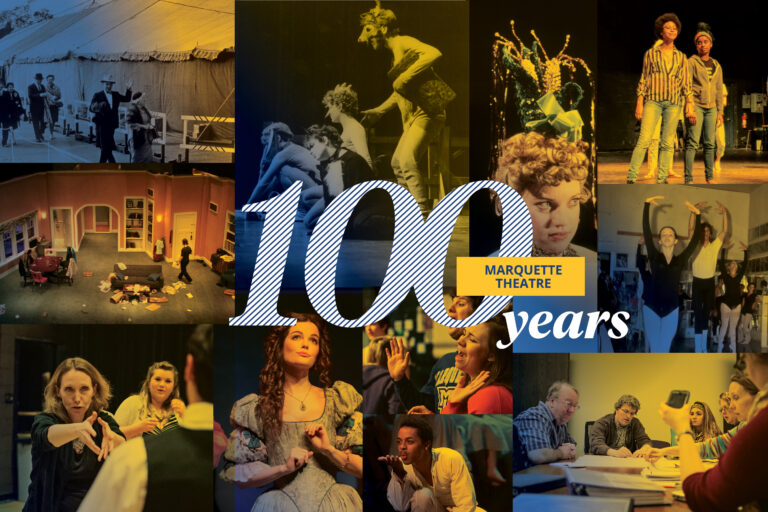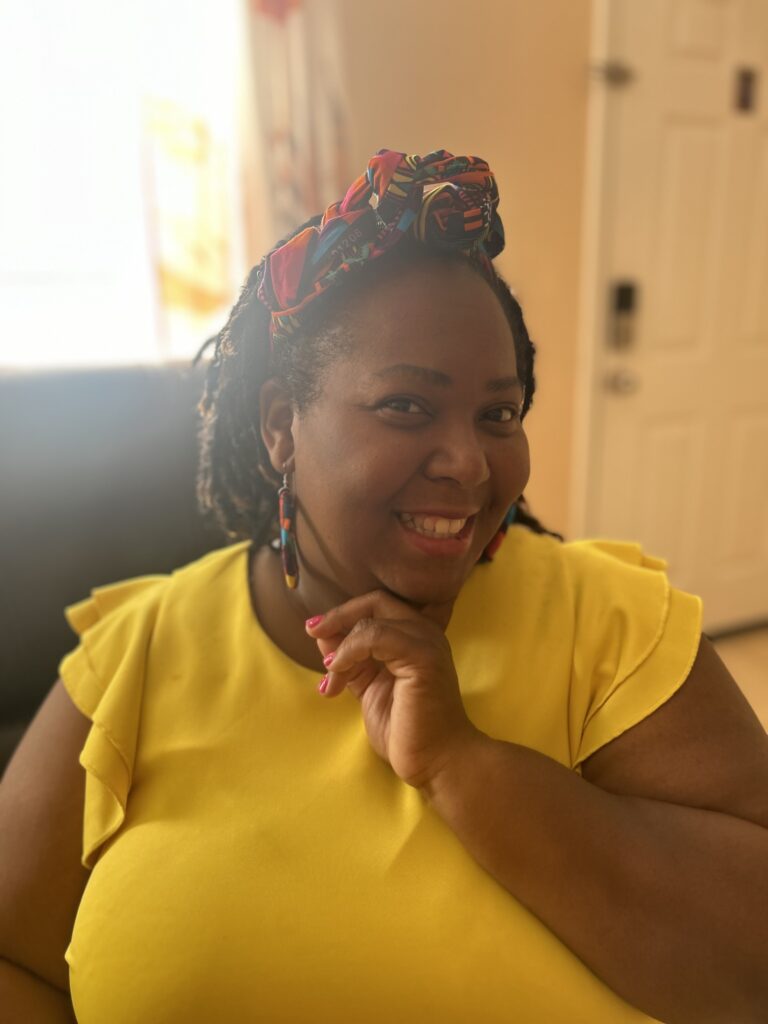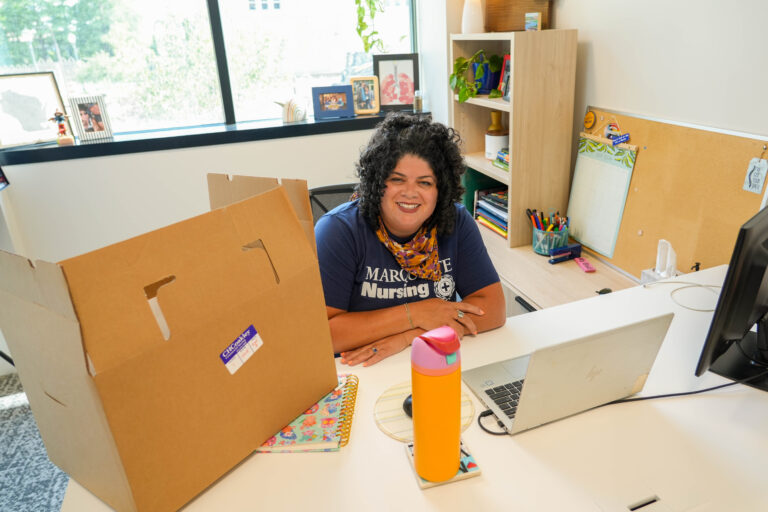Matt Carone and Owen Vullo are part of Beta Alpha Psi, the collegiate business honor society. To join, the two accounting students were required to tutor their peers for community service hours, so Carone and Vullo were used to instructing others.
They just weren’t used to getting booed while they do it.
“I remember talking about an example of an accounting equation, and all of a sudden, some of the students were booing me,” Carone says.
Under normal circumstances, such behavior from the students in Jenifer Herkowski’s eighth grade class at Holy Family Parish Middle School would have earned a stern rebuke from the teacher. This time, though, the class was told to boo by the two Marquette students’ professor: Instructor of Practice in Accounting Richard Tobin.
“If our students started to slip into language they didn’t understand, I told the eighth graders they could boo or flash a thumbs down,” Tobin says.
A little tough love is sometimes necessary in Tobin’s accounting communication class, an advanced course that teaches students who usually deal in numbers about choosing the right words for public presentation, written reports and other common business scenarios.
According to Tobin, the course is necessary to bridge the disconnect between how accountants talk to each other and how those who need to understand accountants’ conclusions want to be informed. Terms like “mark to market” and “EBITDA” might be common vocabulary for his students, but not for most others. They needed to meet the audience at their level of expertise.
Initially, students’ reports were rated on the Flesch-Kincaid readability test, which uses an algorithm to determine what reading level a particular passage would fall under. Then Tobin found a better idea.
“I wanted students to get out of their jargon to the point where they could communicate something at an eighth-grade level,” Tobin says. “Then I thought, instead of using the tests, let’s just do it live. Let’s literally talk to eighth graders.”
Tobin reached out to Holy Family Parish School, a pre-K through eighth-grade institution in Whitefish Bay, to ask if they’d be interested in having Marquette students walk some of their middle schoolers through basic accounting concepts. Herkowski jumped at the opportunity.
“Getting them to understand this stuff now gives them a good, solid base for adulthood so they’re a little more prepared for what’s going to come when they’re independent,” Herkowski says.
The Marquette students did not know they were going to tutor the class until just minutes prior. Carone and Vullo walked into class expecting a regular day until they saw a group of eighth graders projected on a screen at the front of the room. After being split into groups and given the task of explaining the big four financial documents — balance sheets, cash flow statements, income statements and shareholders’ equity statements — the students had to formulate a lesson plan almost on the fly.
Neither student was accustomed to this kind of tutoring.
“We’re usually helping students who are taking basic accounting and at least have some kind of familiarity with it, whereas eighth graders don’t really know anything about the subject,” Vullo says.
“I had experience helping friends with homework, but that was about my extent of it,” Carone adds. “I felt pretty comfortable with the idea of it; going into the eighth-grade class was just a little bit of a shock, but hopefully we were able to get some good points across.”
This exercise is a potential cure for what Tobin calls the “curse of expertise,” a paradoxical pattern in which the more people learn about a given topic, the worse they tend to be at communicating it. Tobin used to get his students out of this pattern by bringing in Ph.D. holders in non-accounting subjects and having each group try to explain its area of expertise to the other.
A sure sign of someone suffering from the curse is a tendency to get into too much detail. Tobin says he explained what revenues were by taking the example of apparel company Ralph Lauren, telling the younger students that “they sell sweaters with a horse on the collar. Every time they sell one, that’s a revenue.”
“The people who use concrete analogies, who say that a financial statement is like a storybook, or an income statement is like a scoreboard for a sporting event — those students tended to do well,” Tobin says. “The students who did less well almost immediately jumped into the weeds of the subject. They couldn’t help themselves because we’re accountants and that’s what we tend to do.”
In addition to booing their tutors, the Holy Family middle schoolers were also directed to nod their heads and give thumbs-ups to presenters who spoke more clearly. Herkowski feels that the one-hour session made a lasting impression on her class.
“It was a short amount of time and a lot of information, so the kids naturally get a little bit overloaded. But the kids got some pointers out of it that I think they will remember,” Herkowski says. “Even if my students don’t want to go into accounting, that ability to have a peek at a college class and see the work they do is a huge positive piece for them.”
The students weren’t the only ones who benefited from the experience. Professors often switch between communicating to high-information and low-information audiences, such as when writing a research paper and teaching an introductory-level class simultaneously. These skills are just as useful for Tobin as they are for the exercise participants.
“The ability to communicate your expertise in a way that everyone will understand is a differentiator,” Tobin says. “I’ve learned a lot from this class about how I should teach first-year students. I always find it helps to ask, first and foremost, how students can best access what I’m trying to say.”



